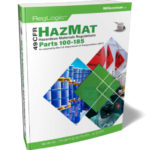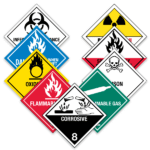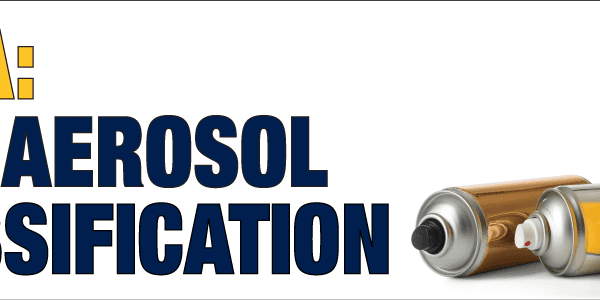 PHMSA Proposes Update to DOT Hazmat Registration Fees – HM208J
PHMSA Proposes Update to DOT Hazmat Registration Fees – HM208J
Like everything else, the cost of transporting hazardous materials is going up.
Hazardous materials traffic has increased significantly since Covid restrictions have ended. This benefits the economy, but also puts an increased burden on first responders who have to deal with hazmat incidents. Therefore, the Pipeline and Hazardous Materials Safety Administration (PHMSA) has proposed updates to the registration fees that apply to hazmat shippers and carriers, as required by statute.
PHMSA’s Notice of Proposed Rulemaking (NPRM) can be found in a docket in the Federal Register identified as HM-208J. HM-208J would increase the annual fee for registrants that qualify as a small business or not-for-profit organization from $250 to $375, an increase of $125. For companies and organizations not qualifying as small businesses or not-for-profit organizations, the cost would be raised from $2575to $3,000, an increase of $425.
Actions such as fee adjustments are necessary to fund PHMSA’s Hazardous Materials Emergency Preparedness (HMEP) grants program at newly authorized levels in accordance with the Infrastructure Investment and Jobs Act. These programs include:
- Development of the Emergency Response Guidebook (ERG), a vital resource for American first responders;
- Supporting hazardous materials emergency response planning and training activities by states, local governments, and Native American Tribes; and
- Funding non-profit organizations that provide ‘‘train-the- trainer’’ and direct training programs for hazardous materials emergency response training and hazardous materials employee training.
However, it’s not all about raising prices – the NPRM includes solutions that may help save industry costs in the long run. First, PHMSA proposes to implement an electronic-only registration fee payment process through a new portal, eliminating cash or check payments. Also, PHMSA proposes to revise requirements to clarify that a certificate of registration may be carried in either electronic or paper form for both motor carriers and those who transport hazardous materials by vessel.
What Do You Need to Do about This?
You can make official comments on this if they are received by August 22, 2024. (PHMSA may consider later comments but can’t guarantee that.) Comments can be made on the Federal e-Rulemaking Portal at https://www.regulations.gov., by fax or by regular mail. Remember this is not a Final Rule, just an NPRM. The Final Rule would be issued after comments and other factors have been considered.
Questions?
ICC the Compliance Center will, of course, be watching as PHMSA progresses through the regulatory development process. If you have any questions, contact ICC Compliance Center, we can advise you on current and upcoming regulations. Our team of experts is just a call away for our customers at 855.734.5469 or send us an email, we’re happy to help.
Stay up to date and sign up for our newsletter!
We have all the products, services and training you need to ensure your staff is properly trained and informed.
 49 CFR Publications 49 CFR Publications |
 UN Approved UN ApprovedPackaging and Boxes |
 Hazard Class Labels Hazard Class Labels |
Sources:
Federal Register, May 24, 2024, https://www.govinfo.gov/content/pkg/FR-2024-05-24/pdf/2024-11391.pdf






 ICC USA
ICC USA ICC Canada
ICC Canada